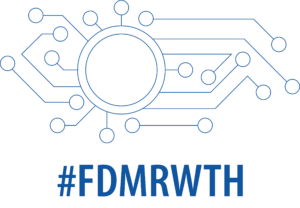
Source: Freepik
(Research) data are the basis of decisions and are becoming more and more important with today’s technologies and possibilities. Thus, the correct management and publication of research data is also taking on an increasingly important role. Two central concepts in this context are archiving and publishing research data. But what exactly do these concepts mean and how do they differ in the research process? In this article, we take a close look at the differences between archiving and publishing research data.
Archiving Research Data: The Treasure in the Background
Archiving research data refers to the long-term storage and maintenance of raw data, analyses, documentation, and other artifacts created during the research process. These data form the foundation of scientific work and allow research findings to be substantiated, reproduced, and built upon. A well-organized and structured archive ensures the integrity of research and long-term data preservation for the scientific community.
Archiving research data includes:
- Ensuring integrity: the secure storage and availability of authentic and unaltered research data ensures the transparency and traceability of research.
- Long-term availability: research data is stored so that it can be accessed by responsible parties in the future, even if the original researchers are no longer available.
- Metadata and documentation: Archiving always includes documentation. A clear description of the data with metadata, such as the analysis methods used, the measurement dates, or even other relevant information, allows the data to be understood and kept usable in the long term.
Coscine provides an effective solution for archiving research data. With Coscine, researchers can systematically organize their data and tag it with relevant metadata. This enables compliance with good scientific practice and FAIR (Findable, Accessible, Interoperable, Reusable) principles. By using Coscine, researchers can ensure that their research data remains accessible, traceable, and reusable over the long term.
Publishing Research Data: Sharing the Knowledge
Publishing research data goes one step further than simply archiving it. It involves actively making research data available to the public, often in discipline-specific databases or repositories. Publishing research data enables other scientists to learn from or use the data and possibly gain new insights from it.
Beyond the aspects of “ensuring integrity,” “long-term availability,” and “metadata and documentation,” publishing research data has the following benefits:
- Knowledge sharing: by sharing their data, researchers contribute to faster and greater knowledge gain and allow others to learn from their results.
- Potential collaboration: publishing research data can foster collaborations between different research groups.
- Transparency and verifiability: when research data are published, other scientists can review and reproduce the results, which strengthens the quality and reliability of research.
RWTH Publications serves as an institutional repository to actively make research data available to the scientific public. The platform enables researchers at RWTH Aachen University to publicly share their scientific findings and data, thus promoting knowledge transfer and the visibility of research results.
Conclusion
Both archiving and publishing research data play a critical role in scientific progress. Archiving ensures the integrity and long-term availability of data, while publishing also promotes knowledge sharing and collaboration. Both aspects are essential to ensure the quality, transparency, and sustainability of research. By finding the balance between these two concepts, researchers can help push the boundaries of knowledge and advance the research community as a whole. It is also important that researchers consider, at best before the project begins, whether and to what extent the data obtained will ultimately be published and what archiving method will be used. Depending on what type of data is to be used (e.g., personal data), appropriate precautions must be taken with regard to accessibility or anonymization of the data must be undertaken.
Learn More
Feel free to take a look at the learning clip of the RWTH Aachen University Library and learn more about archiving research data:
[Das Video wird nach dem Klick von Youtube geladen und abgespielt, dazu baut der Browser eine direkte Verbindung zu den YouTube-Servern auf. Es gilt die Datenschutzerklärung von Google.]
If you have any questions about archiving or publishing research data, simply write a message to the IT-ServiceDesk. The RDM team looks forward to hearing from you.
Responsible for the content of this article is Arlinda Ujkani.





Leave a Reply
You must be logged in to post a comment.